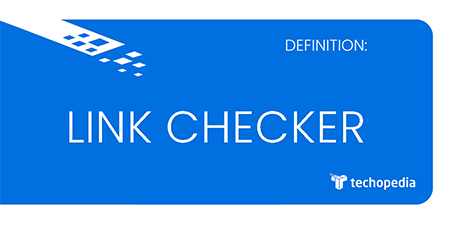You've probably heard of downloading a URL or being asked to click on a link to a URL without knowing what that URL holds or whether the link is safe or not. A URL, or Uniform Resource Locator, describes a specific resource on the internet, much like an address refers to a house. Whether you use a Mac, Windows, Linux, iOS, or Android, there's a good chance that you've received an e-mail or text message from someone trying to get your personal information from an URL search. Data is money, and the bad people see you as a big ol' dollar sign. So, here are some important pointers on how to check if an URL search is safe for both phones and desktops.
Identifying Unsafe Links and URLs
Today, if you do not use a URL search tool or service that detects malicious websites, you will eventually land on a site that is infested with malware and will download that malware onto your computer, tablet, laptop, or phone. However, you can avoid becoming a victim of malware by using one of several URL search tools that will test the security of a website before visiting it. Here's how web tools can help you differentiate between safe and malicious URL search.

Utilize URL search tools that check the safety and security of URLs automatically as you continue to browse.
All common browsers include tools to alert you if a URL/link is malicious.
- Look for https:// in the URL of the website you need to visit. HTTPS is an abbreviation for HTTP Secure, and it adds a layer of encryption to any communications sent through that website. HTTPS can aid in the prevention of man-in-the-middle attacks and eavesdropping.
- Your browser may alert you if a website's security certificate is no longer valid. If you see one of these warnings, avoid visiting the website until you are certain it is secure.
This type of functionality is also available in many security URL search software packages.
- Use advanced URL search internet security software with real-time anti-phishing and web threat protection to protect yourself from malicious websites.
- There are also independent URL search tools available that you can download for monitoring URLs in search results. Several of them are completely free of cost.
Use an online URL-checking service that lets you check an URL search in real time.
Search engines and web development corporations, such as Google, are excellent resources for locating online tools that determine whether a URL contains malware or offers a safe browsing experience. The disadvantage of these URL search services is that you must manually run this operation every time you need to visit an unknown URL, but the advantage is that no software is necessary to be installed on your computer device.
These URL search tools will help you significantly lower the risk of infecting your machine systems, having your identity theft by malware, or losing control over your passwords and banking authentication tools, even though they do not completely replace the requirement that you have security software installed and kept up to date on every one of your internet-connected devices.
What a Link Checker Should Do
There are two types of URLs:- A standard-length form of URL, beginning with www, continued by the website name, and concluding with .com or some other top-level domain name.
- A shortened form of URL, like goo.gl/V4jVrx.

It makes no difference whether the link you received was long or short. An URL search tool should alert you if it is dangerous in any way. The link checker will immediately highlight any links that will take you to a compromised website. These URL search tools should also report direct links to malware, ransomware, and other risks. A safe link checker or URL search website will assist you in determining the truth about those suspect links. Check more than one every time to get the ideal results.
cWatch Comodo URL search
The security of website visitors should be the responsibility of the website owner, but sadly, some websites simply aren't secure. A dangerous website has the potential to send spam, steal your information, and spread malware. It's critical to know that a website takes your safety seriously in order to safeguard yourself and your personal information.
For many years, Comodo has been fostering trust online. It kept working toward its corporate goal of completely protecting the online community. With their cWatch Web solution, they now offer website security checkers after first becoming a mainstay in the SSL certificate market. This URL search technology searches through billions of URLs each day in search of dangerous websites. These built-in browser URL search tools can block harmful flash content, stop obtrusive pop-up ads, send "Don't Track" requests to websites, and more. Simply copy the URL, paste it into the checker's search bar, and press Enter. Within a few seconds, the URL search tool will validate the URL and check the legitimacy of the website. For better results, use the cWatch Safe Site Checker Tool!





